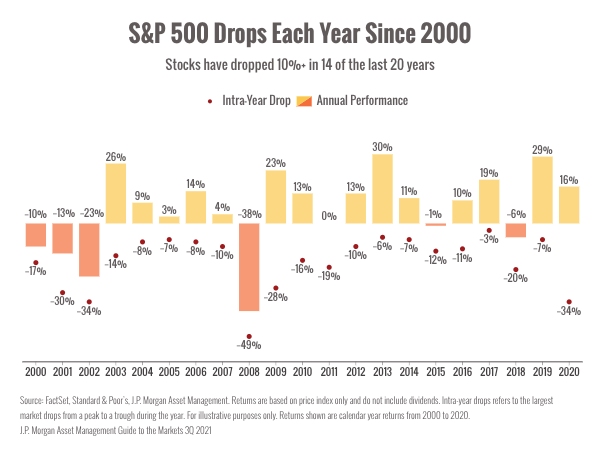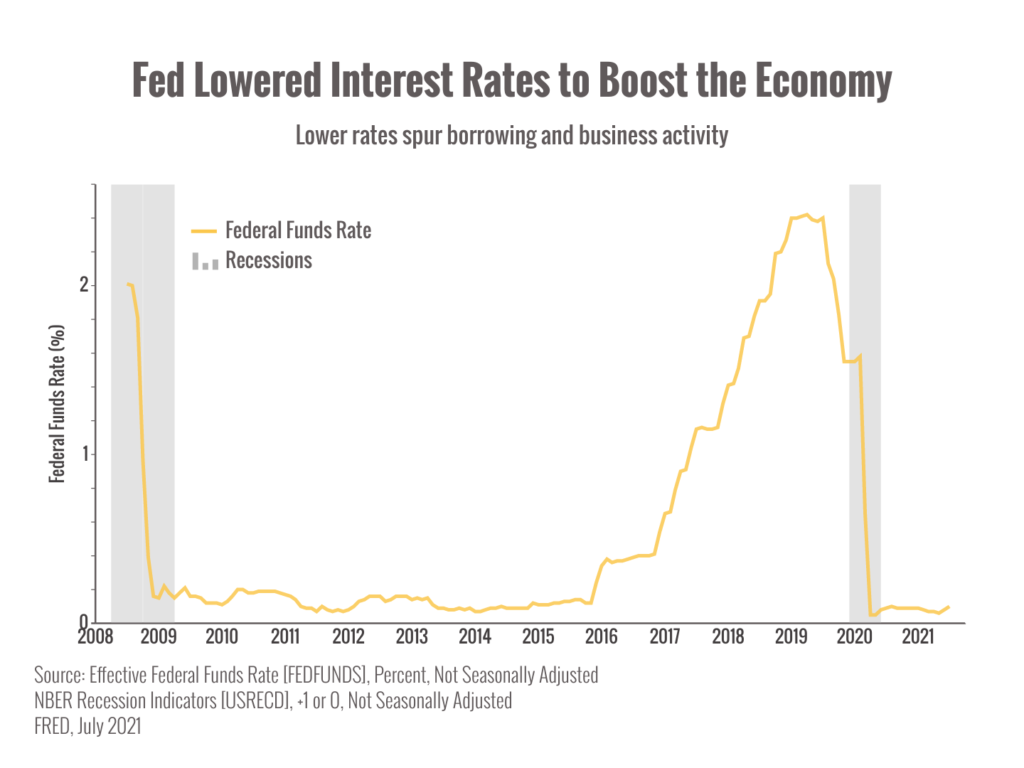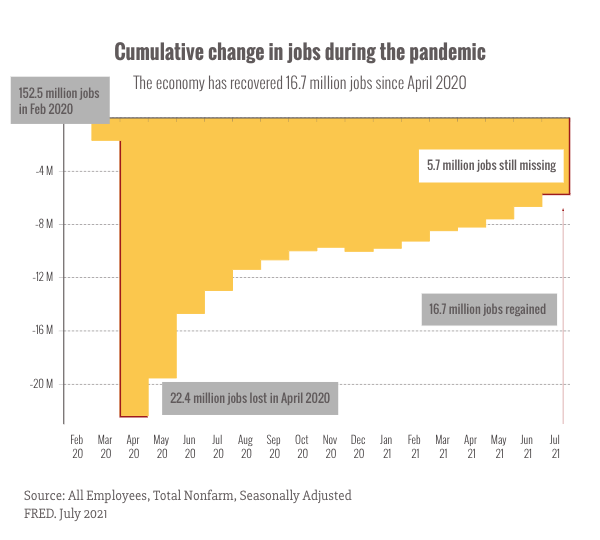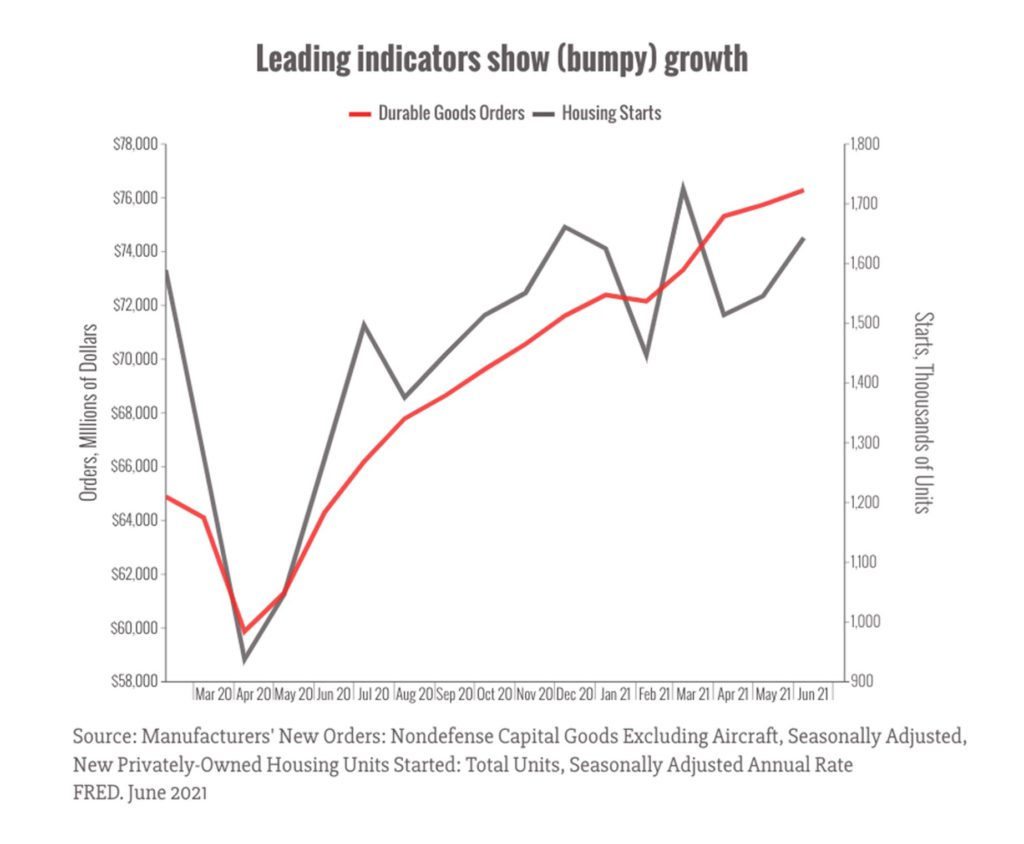< back to Market Insights Blog
Capitol Hill is producing more drama than Hollywood.
We’ve got bold statements, ultimatums, cliff-hangers, and confusing sequels.
We’ve even got folks paddling up to Senators’ party boats to discuss tax reform.

Let’s recap what we know with some educated speculation about what could happen next.
[Scroll down to the bottom for the nitty-gritty if you want to skip the details.]
Congress is currently debating two action items on President Biden’s “Build Back Better” agenda: The American Jobs Plan (which includes corporate tax increases) and the American Families Plan (which includes individual tax increases).1
Neither plan looks close to passing in its current form, so nothing is set in stone yet.
But the provisions below offer a blueprint for what could happen.
The House is negotiating a package of tax increases that would pay for expanding Medicare, free community college and prekindergarten, and increase the federal safety net.2
If passed as-is, it would:
- Increase the top marginal income tax rate to 39.6% for individuals earning more than $400,000, joint filers above $450,000, and head of household filers above $425,000.
- Raise the top long-term capital gains rate from 20% to 25% for those same folks.
- Add a 3% tax on incomes of over $5 million.
But wait… there’s more. Here are a few other key provisions that bear watching:
Retirement accounts may see new restrictions.3
Roth conversions would be eliminated for individuals earning above $400,000.
Folks in that income bracket would also be prohibited from contributing to retirement accounts with an aggregate value over $10 million the prior tax year.
Another critical change that would affect all taxpayers: The bill prohibits all employee after-tax contributions to qualified plans and prohibits after-tax IRA contributions from being converted to Roth, thus potentially eliminating backdoor Roth conversion strategies.
Estate planning may get more complicated.3
Good news first: The “step-up” in tax basis on death is staying and the “deemed realization” rule that would trigger capital gains taxes on death is not included.
However, the estate tax exemption would revert from $11.7 to $5 million.
The deal would also eliminate certain tax benefits of “grantor trusts” as well as limit valuation discounts on non-business assets.
Currently, these provisions would apply only to future trusts and transactions that happen after the effective date of the law.
How likely are all these measures to pass?
Here’s where we start speculating.
To pass the American Families Plan using budget reconciliation, President Biden needs the votes from his entire party.
Progressives are committed to passing the full deal but centrists are balking at the price tag.1
To get through the Senate, it seems like both sides will meet somewhere in the middle.
A lower final cost to the bill would require less revenue to cover and might allow some of the tax increases to be eliminated.
Since the IRS has been targeting Roth conversions and large IRAs, it’s possible that those measures may pass.
When could the new laws go into effect?
It seems likely that most provisions would be effective on January 1, 2022 and apply going forward (not retroactively). However, separate deadlines could be negotiated for certain provisions.
Bottom line: Laws change. We adapt.
Here are the usual caveats:
We don’t know what the final bills will look like and when (or if) they will pass.
Taxes are just one part of your overall picture.
New laws usually contain a mix of positive and negative changes for you, me, and everyone else.
The long-term impact of the positives and the negatives won’t be visible for some time.
Have questions you haven’t asked me or concerns you haven’t raised? Please reach out.
If I see moves that I’d like you to make before year-end, I’ll contact you directly.
Sincerely,
Goran Ognjenovic
Independent Investment Advisors
(971) 350-8068
www.independentadvisorsnw.com
P.S. I’m also keeping an eye on the debt ceiling debate happening right now. I’ll update you if it’s needed.
2 https://www.schwab.com/resource-center/insights/content/will-taxes-rise-wealthy-what-you-should-know
3 https://www.foley.com/en/insights/publications/2021/09/democrats-introduce-tax-proposals
This information is not intended to be a substitute for specific individualized tax advice. We suggest that you discuss your specific tax issues with a qualified tax professional.
The following posts and commentary are to be used solely as educational tools and do not contain investment advice. Investment advice must be tailored to a particular investor’s specific needs. None of the information contained should be construed to be investment advice. Individuals wishing to tailor a plan to their own needs should seek the help of a Registered Investment Advisor.
There is a high degree of risk in investing and trading. Independent Investment Advisors assumes no responsibility. Principles of Independent Investment Advisors may, at times, maintain directly or indirectly, positions in securities or derivatives mentioned in these comments.





